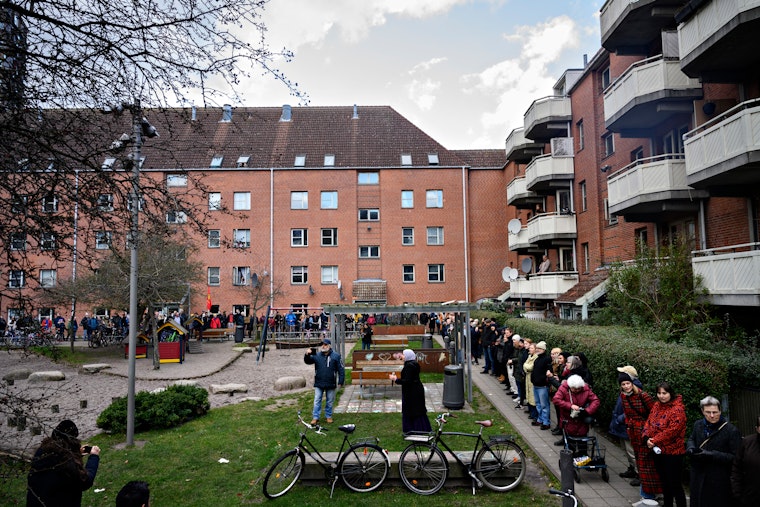Evidence Suggests Evictions in a Danish Neighborhood were Racially Biased. Now the Case is Before the High Court.
By Maïté De Rue & Joana Clemens

In January 2020, 96 families in the Danish neighborhood of Nøjsomhed-Sydvej, in the city of Helsingør, received notifications from their housing association that they were going to be forcibly evicted, supposedly to permit renovations. Riad, a young Danish engineer, and his family, were among these residents. Born and raised in the area of Nøjsomhed-Sydvej, Riad is a Danish citizen. His parents, originally from Palestine, settled in Denmark in the late eighties after leaving Lebanon.
Evidence suggests that the real reason behind the forced evictions is to change the ethnic composition of the neighborhood in response to the government’s so-called “Ghetto Package,” a set of legislative proposals announced in 2018 to “eradicate” areas designated under the law as “ghettos” by 2030. Under the legislation, areas that meet certain factors, including the determining criteria of whether the majority of its residents are classified as being of “non-Western background,” are labelled as “ghettos” and subjected to a wide range of measures affecting housing, education, and criminal justice.
If an area is categorized as a “ghetto” for multiple years, it becomes a “tough ghetto”—which would require that “common family housing,” a form of Danish non-profit housing, in these designated neighborhoods not exceed 40% by 2030. The “Ghetto Package” has put thousands of people across Denmark, like Riad’s family, at risk of eviction.
Nøjsomhed-Sydvej received official designation as a “ghetto” in 2018. Since then, the neighborhood’s housing association has expressed concerns that the area would be designated as a “tough ghetto” unless the number of tenants of “non-Western background” was quickly reduced—which is why the housing block on which Riad’s family lives, and others with comparatively higher numbers of residents with “non-Western” background, were selected for lease termination. The disproportionate impact of these evictions has been underscored by researchers’ findings that 66 percent of the residents whose leases were subject to termination were immigrants and descendants from “non-Western” countries, whereas the overall share of such residents in the housing area was much lower, at 54.6 percent.
This is clearly a violation of the prohibition of discrimination based on ethnicity, as enshrined in international and regional human rights law. That’s why the case is now before Denmark’s Eastern High Court on appeal after it was dismissed by the housing tribunal. The eight appellants, who are from among the 96 households affected by forced eviction, argue that the terminations constitute direct discrimination on the basis of ethnic origin; the housing association selected them for eviction in order to reduce the percentage of individuals of “non-Western background”. As highlighted by the Court of Justice of the European Union in a 2015 ruling, discrimination occurs whenever ethnicity is a determining factor behind less favorable treatment, even if other considerations are taken into account—such as, in the Nøjsomhed-Sydvej case, the housing association’s claim that renovations were needed.
A prior 2006 decision released by the European Court of Human Rights also supports their case: it stated that persons cannot be given differential treatment based “exclusively or to a decisive extent” on ethnic origin, in contravention of “principles of pluralism and respect for different cultures” at the core of democratic societies. The Danish Eastern High Court is also considering a separate case brought forward by the residents of Mjølnerparken, an area of Copenhagen categorized as a “tough ghetto,” against the Danish Ministry of Interior and Housing.
While the case proceeds, Riad’s family lives in limbo. They, like many others, only wish to continue living in peace in homes they have occupied for decades. This case could decide their future and set an important precedent for standards for discrimination in Denmark.
Maïté De Rue is a legal officer for national criminal justice reform with the Open Society Justice Initiative, where she focuses on criminal justice reforms, and in particular prosecutorial independence and accountability.
Until January 2023, Joana Clemens was an Aryeh Neier Fellow with the Open Society Justice Initiative.